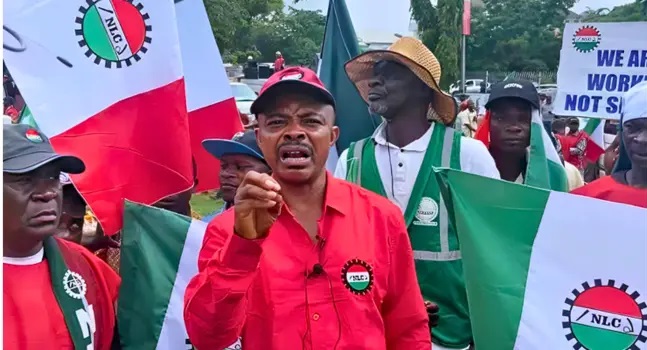
A wave of opposition has erupted following the approval of a 50% increase in telecommunications tariffs by the Nigerian Communications Commission (NCC). The Nigeria Labour Congress (NLC), the Trade Union Congress (TUC), and the Coalition of Northern Groups (CNG) have condemned the move, describing it as insensitive and ill-timed, given the current economic hardships faced by Nigerians.
In a strongly worded statement, NLC President Joe Ajaero decried the increase, arguing that the rising cost of living has already placed a heavy burden on workers. He noted that an average Nigerian worker, earning the minimum wage of ₦70,000, would now have to spend up to 15% of their income on telecom services, an expense he termed “unsustainable.”
“This hike exemplifies the government’s ease in prioritizing corporate profits over citizens’ welfare,” Ajaero stated. “It is shocking that within a month, the government approved this increase, yet it took nearly a year to approve the latest minimum wage despite soaring inflation.”
The TUC echoed these concerns, calling the tariff hike “one increase too many” and urging the government to reconsider. Meanwhile, the CNG demanded an immediate reversal, condemning the decision as an attack on the livelihoods of already struggling Nigerians. The group’s National Coordinator, Jamilu Aliyu Charanchi, called for the dismissal of NCC officials and the Minister of Communications, accusing them of prioritizing corporate interests over the needs of ordinary citizens.
Despite the backlash, telecom operators have welcomed the tariff adjustment, which they say is necessary for the sector’s survival. Under the umbrella of the Association of Licensed Telecom Companies of Nigeria (ALTON), operators had originally sought a 100% hike, citing rising operational costs due to inflation, naira devaluation, and the removal of fuel subsidies. The NCC’s decision to approve a 50% increase was described by ALTON Chairman Gbenga Adebayo as “a good way to begin the recovery of the distressed sector.”
Similarly, Airtel Nigeria’s CEO, Dinesh Balsingh, defended the hike, stating that it reflects “a balanced approach” between affordability and sustainability. He argued that increased revenue would enable telecom firms to expand network infrastructure, improve coverage, and enhance service delivery.
In response to consumer concerns, the Federal Competition and Consumer Protection Commission (FCCPC) has pledged to monitor compliance and ensure that the tariff adjustment translates into better service delivery. It also urged telecom consumers to report any unfair practices.
As public opposition grows, labour unions and civil society organizations are considering nationwide protests, including a possible boycott of telecom services, to force a policy reversal. The NLC has called on Nigerians to prepare for “collective action” to challenge what it describes as an unjustifiable increase.








